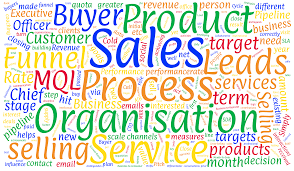Coming up with business ideas is mostly easy for almost anyone. Starting a business or startup is also generally easy for many people. You can register an enterprise, set up social media accounts, a website, and so on. You can even come up with branded material e.g. fliers, posters, banners, and the like. You can even get a space, room, or building to operate from. All that and more can be quite easy to do for many of you. The real essence comes to the fore when looking at making sales. It is the businesses and startups that realize regular and consistent sales that stand a good chance to last. Here are some sales terms you must know:
Prospecting
If you are running a business or startup, it is a no-brainer that you have to search around for potential customers. That process is what is called prospecting. Somewhat related to prospecting is another key term or phrase – follow-ups. A follow-up within our context entails making efforts to persuade a prospect to make a purchase. Yet another term to add here is an objection. An objection is when a prospect does not agree with something. Objections should excite not scare you because you get to be creative. They can be invaluable learning curves for your brand.
Inbound And Outbound
When someone approaches your brand they are in principle a potential customer. The fact that they came to you makes them inbound. It is important to establish how they got to know about your brand. You should also keep tabs on how inbounds communicate with you. Such data is relevant to drawing insights that can inform your strategy formulation. Even more important is to engage with inbounds promptly and interactively. If you are nonchalant it will be difficult to have them transition from potential customers to actual customers. An outbound is just the opposite of an inbound. This is a potential customer that you approach. The important things to consider and how to handle them are more or less similar to an inbound.
Closing
Closing is when a prospect agrees to make a purchase – the sweetest part of the sales process. Closing is when you and the prospect reach a working agreement regarding the terms of the sale. This also includes the prospect making a concrete commitment to pay. From that moment on your chances of making them a repeat customer are higher. After all, is said and done you need to be closing sales; that is the goal. Aside from concluding a sale, the closing can also refer to concluding a discussion or negotiation.
Decision Maker And Gatekeeper
The decision maker is the one who decides whether or not to make a purchase; they are the final authority. There are several different types of decision-makers you will encounter. Some of the common ones are the charismatic, the deep thinker, the sceptic, the follower, and the controller. Using one-size-fits might not be smart given those differences from person to person. The gatekeeper is the one who dictates the accessibility of the decision maker. Who gets access to the decision maker and who does not? This is determined by the gatekeeper. As someone looking to realize sales, you will contend with gatekeepers. The nature of decision-makers and gatekeepers will differ depending on the context e.g. B2B or B2C, amongst others.
B2B And B2C
B2B stands for business to business. This refers to direct trading between businesses. B2B usually involves huge sales volumes, competitive pricing, and deferred payment terms, amongst others. A common example of B2B is wholesale. B2C stands for business to customer. This is the selling of products or services to individual customers mostly on cash and carries basis. Retail is one of the classic examples of B2C. You must appreciate the different aspects of how to handle sales for either of the two. Though there are overlaps there are approaches best suited specifically to either.
Brian Tracy says, ‘Keep your sales pipeline full by prospecting continuously. Always have more people to see than you have time to see them. That is the open secret about succeeding in business or entrepreneurship. An anonymous person once said something instructive about sales: ‘A sale is not something you pursue; it is what happens to you while you are immersed in serving your customer’. More than just knowing the terms we discussed you need to become intimately acquainted with how to close sales. If you cannot sell nothing else matters.








